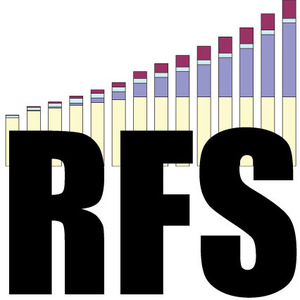Final 2018-'19 RFS rule sent to White House OMB for review

November 2, 2017
BY Erin Krueger
The White House Office of Management and Budget is reviewing the U.S. EPA’s final rule to set 2018 Renewable Fuel Standard renewable volume obligations (RVOs), along with the 2019 RVO for biomass-based diesel. OMB review marks a final step before the final rule is released to the public. Under statute, the EPA is required to issue a final rule establishing 2018 RVOs by Nov. 30.
The EPA first released its proposal to set 2018 RVOs and the 2019 RVO for biomass-based diesel on July 5. The proposal called for 19.24 billion gallons of total renewable fuel, including 238 million gallons of cellulosic biofuel, 2.1 billion gallons of biomass-based diesel and 4.24 billion gallons of advanced biofuel. The 2.1 billion gallon biomass-based diesel requirement for 2018 was finalized by the Obama administration last year. For 2019, the new proposal calls for the biomass-based diesel RVO to be maintained at 2.1 billion gallons.
Advertisement
When compared to the final RVO for 2017, the requirement for total renewable fuel drops slightly from 19.28 billion gallons to the proposed 19.24 billion gallons. The cellulosic RVO has also been lowered, from 311 million gallons in 2017 to a proposed 238 million gallons in 2018, with the advanced biofuel requirement dropping from 4.28 billion gallons in 2017 to a proposed 4.24 billion gallons in 2018. The final RVO for biomass-based diesel in 2017 was set at 2 billion gallons.
A comment period on the proposal opened July 21 and ran through Aug. 31. Approximately 236,370 comments were filed on the proposed rule.
On Sept. 26, the EPA published its Notice of Data Availability contemplating reductions in 2018 and 2019 RVOs. The potential reductions primarily targeted biomass-based diesel, but could potentially results in corresponding reductions in RVOs for advanced biofuels and total renewable fuels.
Advertisement
The NODA cites issues related to the cost and supply of biofuels as reasons for the EPA’s action. Specifically, the NODA cites the expiration of the $1 per gallon biodiesel tax credit and the August preliminary determination by the U.S. Department of Commerce that it would be appropriate to place countervailing duties of 41 percent to 68 percent on imports of biodiesel from Argentina and Indonesia as factors that could impact the cost and supply of advanced biofuels.
The NODA was subject to a 15-day comment period that closed Oct. 19. Approximately 40,017 comments were filed on the proposal.
Several senators, members of congress, governors and groups representing the biofuels industry fought back against the EPA’s proposed action. As a result, EPA Administrator Scott Pruitt issued a letter Oct. 19 in which he indicated the EPA expects to set final 2018 RVOs at or above proposed levels. Pruitt also said the EPA would issue a final rule maintaining the current point of obligation under the RFS within 30 days. In addition, Pruitt said the EPA is actively exploring whether it possesses the legal authority to extend the Reid vapor pressure (RVP) waiver to fuel blends containing more than 10 percent ethanol. He also noted the EPA has not and will not take any formal action to propose amending RFS regulations to allow renewable identification numbers (RINs) to be attached to exported volumes of ethanol.
Related Stories
The European Commission on July 28 approved a €36 million ($41.07 million) Danish state aid scheme designed to encourage airlines operating in Denmark to use sustainable aviation fuel (SAF) on domestic routes.
The abrupt closure announcement by Biox Corp. is the latest example of a failure to secure Canada's domestic energy supply, says Unifor. The Canadian energy union is advocating for simply regulatory changes that could help restart the facility.
The U.S. EPA on July 29 released a proposed rule to repeal the agency’s 2009 Endangerment Finding, which forms the legal basis for the agency’s GHG regulations. The proposal also aims to repeal all GHG regulations for motor vehicles and engines.
While final IRS guidance is still pending, the foundation of the 45Z program is well defined. Clean fuel producers should no longer be waiting; they can now move forward with critical planning and preparation, according to EcoEngineers.
The IRS on July 21 published a notice announcing the 2025 calendar-year inflation adjustment factor for the Section 45Z clen fuel production credit. The resulting adjustment boosts maximum the value of the credit by approximately 6%.
Upcoming Events










